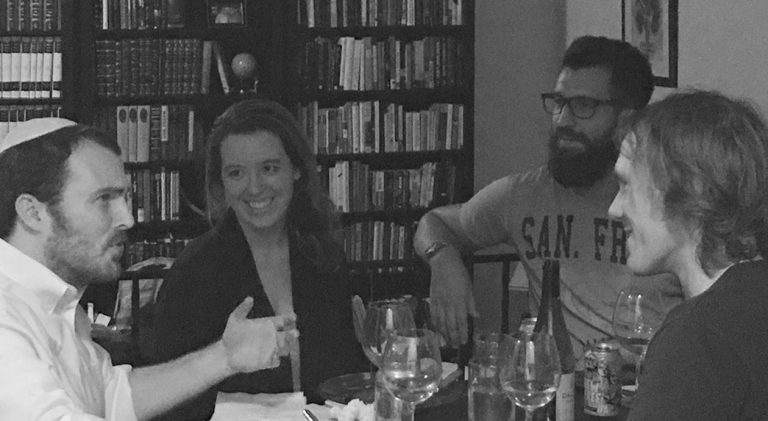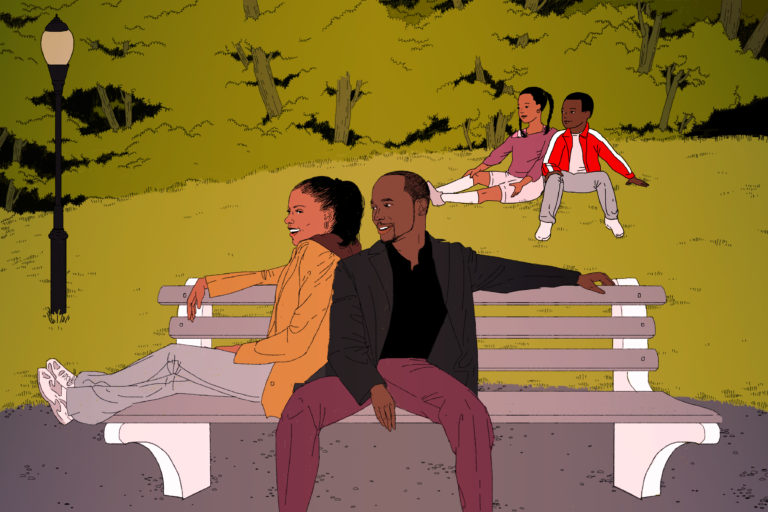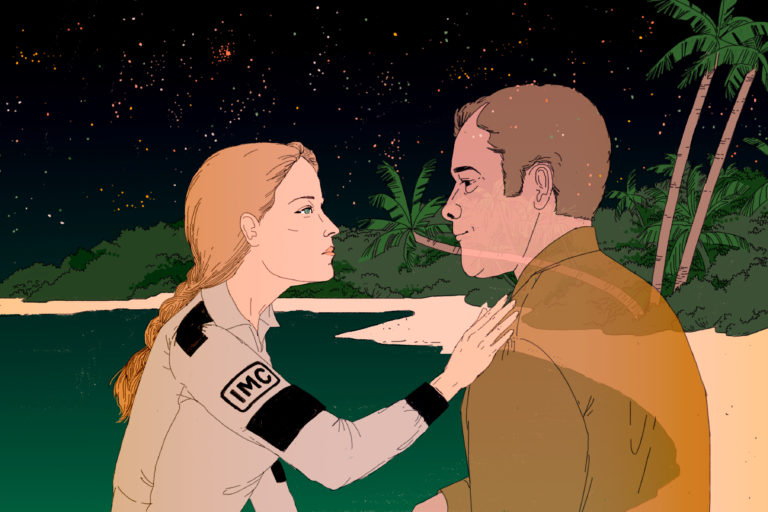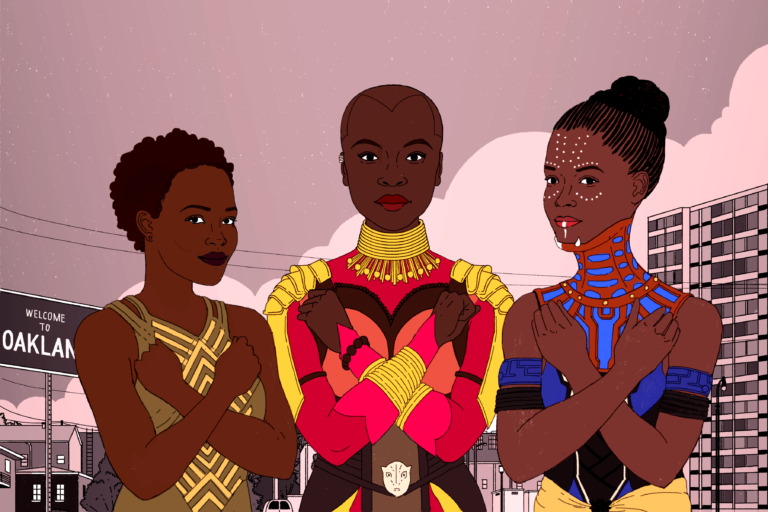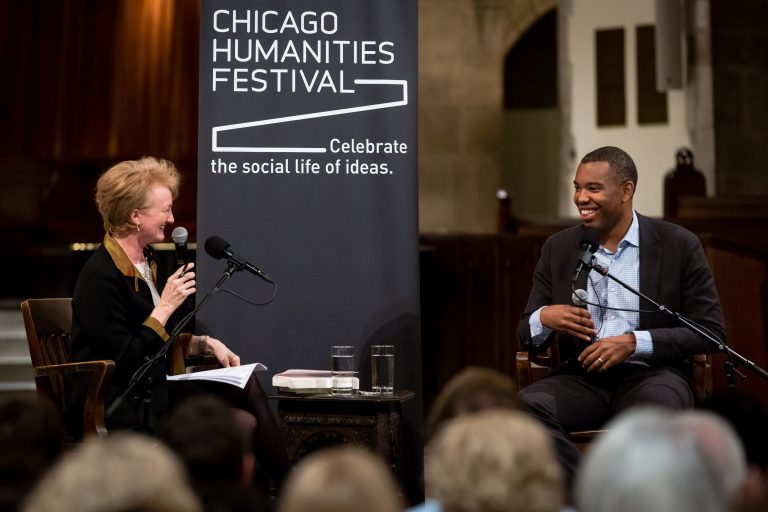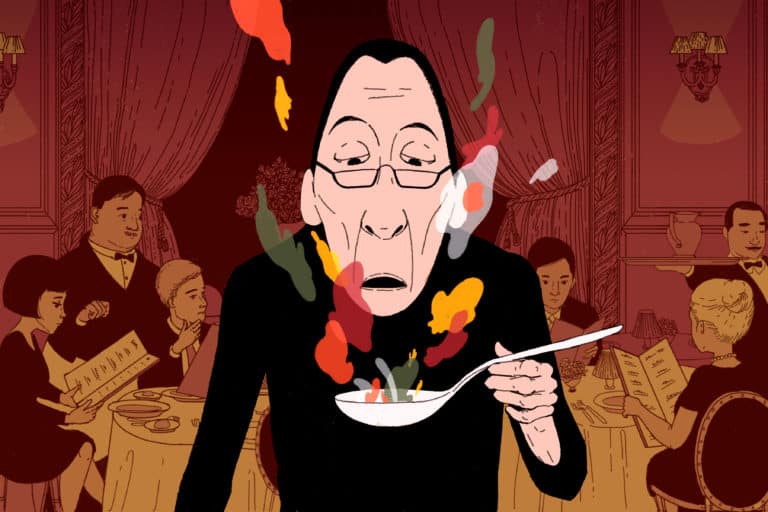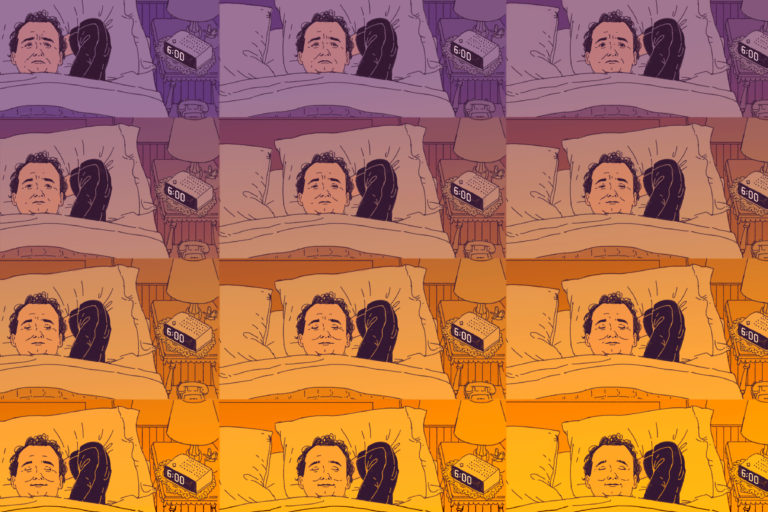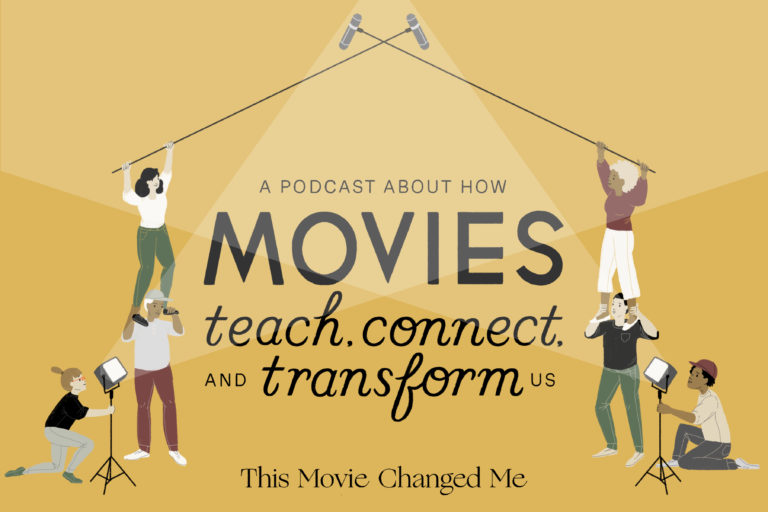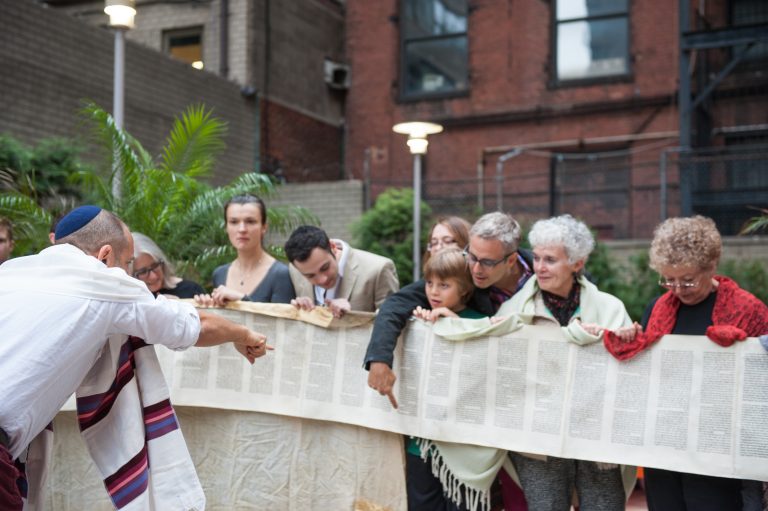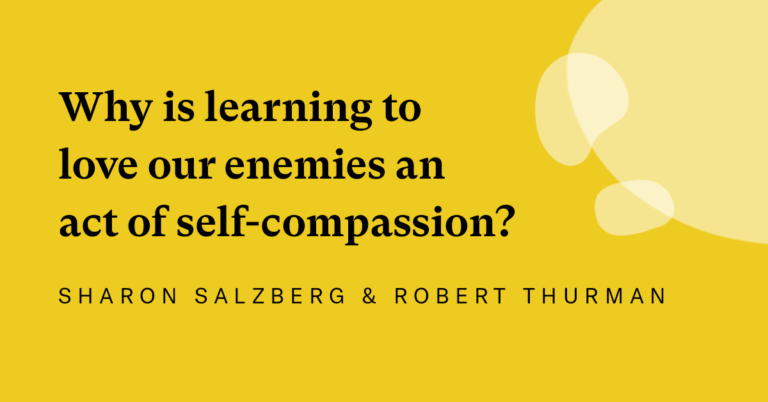Career Girls is a love letter to the friendships that shape us in our formative years, and the nostalgia that accompanies us once we’ve grown out of them. The indie movie follows Annie and Hannah, college friends who reunite for the first time since they graduated six years ago. Karen Corday, a writer, was the same age as the characters when she first saw the movie. She says it helped her feel seen and comforted to know that her experiences “just living as a person in the world” were worth exploring.
Podcasts
View
- List View
- Standard View
- Grid View
887 Results
We’d heard Derek Black, the former white-power heir apparent, interviewed before about his past, but never about the college friendships that changed him. After Derek’s ideology was outed at the New College of Florida, Matthew Stevenson (one of the only Orthodox Jews on campus) invited him to Shabbat dinner. What happened next is a roadmap for navigating some of the hardest and most important territory of our time.
The movie Brown Sugar is, at its heart, a tribute to hip-hop — complete with a soundtrack featuring artists like Mos Def, Erykah Badu, Jill Scott, and Mary J. Blige. It follows Dre and Sidney, childhood friends whose love of hip-hop is what connects them throughout their life. This coming-of-age story celebrates how love and music feed one another — an idea that spoke to Nick George. From the first time he picked up the DVD at Walmart as a college student to his life now as a spoken-word poet and community leader, Brown Sugar has accompanied him as a grown-up in life, in art, and in love.
James Baldwin said, “American history is longer, larger, more various, more beautiful, and more terrible than anything anyone has ever said about it.” Imani Perry embodies that prism. For the past few years, Perry has been pondering the notions of slow work and resistant joy as she writes about what it means to raise her two black sons — as a thinker and writer at the intersection of law, race, culture, and literature. This live conversation was recorded at the Chautauqua Institution.
Contact takes the sometimes opposing forces of science and religion and puts them in conversation. The movie is based on a 1985 novel by Carl Sagan about Ellie Arroway, a SETI scientist who discovers a radio signal that could suggest extraterrestrial life. During her search she encounters Palmer Joss, a Christian philosopher who challenges her convictions as a scientist. Ellie’s pursuit of meaning outside of religion — an oftentimes lonely endeavor — was an experience Drew Hammond had never seen portrayed in a movie before. A high school teacher, Hammond says the movie granted him permission to stay curious and pursue the questions he has about the world — and it continues to shape how he interacts with his students.
Science writer and reporter Erik Vance says today’s brain scientists are like astronomers of old: They’ve unsettled humanity’s sense of itself by redrawing our picture of the cosmos within our own heads. Vance has investigated the healing power of stories and the “theater of medicine” (white coats included). It turns out that the things that make us feel better are often more closely connected to what we believe and fear than to the efficacy of some treatments. In fact, most drugs that go to trial can’t beat what we’ve dismissively called the “placebo effect,” which is actually nothing less than an unleashing of the brain’s superpowers.
Black Panther made all sorts of history — as the first Marvel production to feature a primarily black cast and the first superhero movie to receive an Academy Award nomination. For Zahida Sherman, a writer and college administrator, taking her students to watch the movie in theaters felt like participating in a historical, cultural moment. “It was just black joy, all day long,” she recalls. In portraying a wide range of black identities — both superhuman and mortal — the movie offered Sherman permission to be herself and see that anything is possible.
Ta-Nehisi Coates says we must love our country the way we love our friends — and not spare the hard truths. “Can you get to a place where citizens are encouraged to see themselves critically, where they’re encouraged to see their history critically?” he asks. Coates is a poetic journalist and a defining voice of our times. He’s with us in a conversation that is joyful, hard, kind, soaring, and down-to-earth all at once. He spoke with Krista as part of the 2017 Chicago Humanities Festival.
Ratatouille is a Pixar feast. The tale of Remy, a rat who dreams of becoming an excellent chef, is a delight to experience in all five senses. One particular character — Anton Ego, the restaurant critic — brings A. O. Scott back to the heart of his own work as a New York Times’ chief film critic. He says Ratatouille changed how he understands the work of criticism. This conversation is not just about food; it’s a reminder to return to our love for our craft — whether that’s food, movies, or something else altogether.
Movies can be whimsical, terrifying, life-altering, culture-changing experiences where the big ideas we take up at On Being show up in the heart of our lives. This hour we experience this through seven lives and seven movies — from The Wizard of Oz and Black Panther to The Exorcist. Get out the popcorn for this upcoming flavor of the new season of our On Being Studios podcast This Movie Changed Me — a love letter to movies and their power to teach, connect, and transform us.
Groundhog Day is a classic movie for two groups of people: Bill Murray fans and anyone who was alive in the ’90s. But writer Naomi Alderman falls into a wholly different category of fandom. The author of The Power first watched Groundhog Day when she was 18 and has seen it dozens of times since then. She says the movie has offered her solace in moments of existential angst and helped her devise a routine for the times when she’s stuck in a rut.
We were made and set here, the writer Annie Dillard once wrote, “to give voice to our astonishments.” Katy Payne is a renowned acoustic biologist with a Quaker sensibility. She’s found her astonishment — and many life lessons — in listening to two of the world’s largest creatures. From the wild coast of Argentina to the rainforests of Africa, she discovered that humpback whales compose ever-changing songs and that elephants communicate across long distances by infrasound.
August 15, 2019
Shane Claiborne and Omar Saif Ghobash
Called and Conflicted
Spiritual border-crossing and social creativity were themes in a conversation between Shane Claiborne and Omar Saif Ghobash, two people who have lived with some discomfort within the religious groups they continue to love. Ghobash is a diplomat of the United Arab Emirates and author of Letters to a Young Muslim. One of his responses to the politicization of Islam has been to bring a new art gallery culture to Dubai, creating spaces for thought and beauty. Claiborne is a singular figure in Evangelical Christianity as co-founder of The Simple Way, an intentional neighborhood-based community in North Philadelphia. One of the things he’s doing now is a restorative justice project inspired by a Bible passage — to transform guns into garden tools. This conversation took place at the invitation of Interfaith Philadelphia, which hosted a year of civil conversations modeled after the work of On Being’s Civil Conversations Project.
Our podcast This Movie Changed Me is coming back with a new season of movie magic, featuring conversations about favorites old and new — from Groundhog Day and Black Panther to Coco and The Exorcist.
New episodes coming to your podcast feed Tuesdays in September. Subscribe on Apple Podcasts, Google Podcasts, Spotify, or wherever you get podcasts.
Darnell Moore says honest, uncomfortable conversations are a sign of love — and that self-reflection goes hand-in-hand with culture shift and social evolution. A writer and activist, he’s grown wise through his work on successful and less successful civic initiatives, including Mark Zuckerberg’s plan to remake the schools of Newark, New Jersey, and he is a key figure in the ongoing, under-publicized, creative story of The Movement for Black Lives. This conversation was recorded at the 2019 Skoll World Forum in Oxford, England.
Forms of religious devotion are shifting — and there’s a new world of creativity toward crafting spiritual life while exploring the depths of tradition. Rabbi Amichai Lau-Lavie is a fun and forceful embodiment of this evolution. Born into an eminent and ancient rabbinical lineage, as a young adult he moved away from religion towards storytelling, theater, and drag. Today he leads a pop-up synagogue in New York City that takes as its tagline “everybody-friendly, artist-driven, God-optional.” It’s not merely about spiritual community but about recovering the sacred and reinventing the very meaning of “we.”
Applied philosopher Jonathan Rowson insists on holding a deeper appreciation for how our inner worlds influence our outer worlds. His research organization, Perspectiva, examines how social change happens across “systems, souls, and society.” “If we can get better and more nimble and more generous about how we move between those worlds, then the chance of creating a hope that makes sense for all of us is all the greater,” he says. We engage his broad spiritual lens on the great dynamics of our time, from social life to the economy to the climate.
The last episode of season two. Robert Thurman and Sharon Salzberg are icons of American Buddhism, and they are joyful, longtime friends. They challenge us to reframe our anger by seeing love for our enemies as an act of self-compassion. “It’s very hard to see love as a force, as a power rather than as a weakness, but that is its reality,” Salzberg says.
The Pause
Join our constellation of listening and living.
The Pause is our seasonal Saturday morning ritual of a newsletter. Replenishment and invigoration in your inbox. Wisdom to take into your week. And when you sign up, you’ll receive ongoing, advance invitations and news on all things On Being.
Search results for “”
View
- List View
- Standard View
- Grid View
Filters



